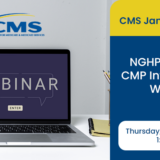On March 9-11, 2026, the Colorado Workers’ Compensation Educational Conference (CWCEC) returns to the Broadmoor in Colorado Springs.
The Medivest Blog
The Colorado Trial Lawyers Association is the largest specialty bar association in Colorado, and their annual convention will begin August 3rd.
A state appellate court in Colorado just held that hospitals in Colorado may forego billing Medicare or Medicaid even when an injured party is a Medicare or Medicaid beneficiary, and may proceed against the injured party as long as the hospital follows certain procedures. See Harvey v. Centura Health Corporation and Catholic Health Initiatives, — P.3d —- (2020) Court of Appeals No. 19CA0091 January 30, 2020*.
Those procedures are that the hospital must first submit charges to the “property and casualty insurer and primary medical payer of benefits available” to the injured person when that person is injured as a result of negligence or wrongful acts of another person, before filing a lien. The state appellate court clarified that neither Medicare nor Medicaid are primary payers of medical benefits and because of this, held that Hospitals in Colorado do not need to bill Medicare and/or Medicaid before filing a lien.
Therefore, Colorado hospitals interested in collecting larger amounts of money than Medicare and/or Medicaid will pay will likely forego billing Medicare and/or Medicaid, and will put the at fault party on notice of its charges, will bill the liability carrier for the at fault party, and then proceed to file a lien against the injured party likely to receive a third party liability settlement.
Of course the charges must be related to the underlying third party liability injury and must be reasonable and necessary. So even if a Colorado hospital lien is perfected, the injured party has a right to dispute whether the charges are injury-related and to contest the reasonableness or necessity of the charges.
Call Medivest when your injured client is facing a hospital lien to allow our specialists to first determine if all of the requested charges are related to the underlying injury, and to negotiate with the lien holder or its recovery agent regarding the amount of reasonable and necessary charges. Don’t let your client pay unreasonable or unnecessary hospital bills even when a lien is filed!
*While this case has not been released for publication in permanent law reports and could be subject to a petition for rehearing in the Court of Appeals or for Certiori in the Supreme Court of Colorado, it is important to be aware of hospital practices in this regard.







